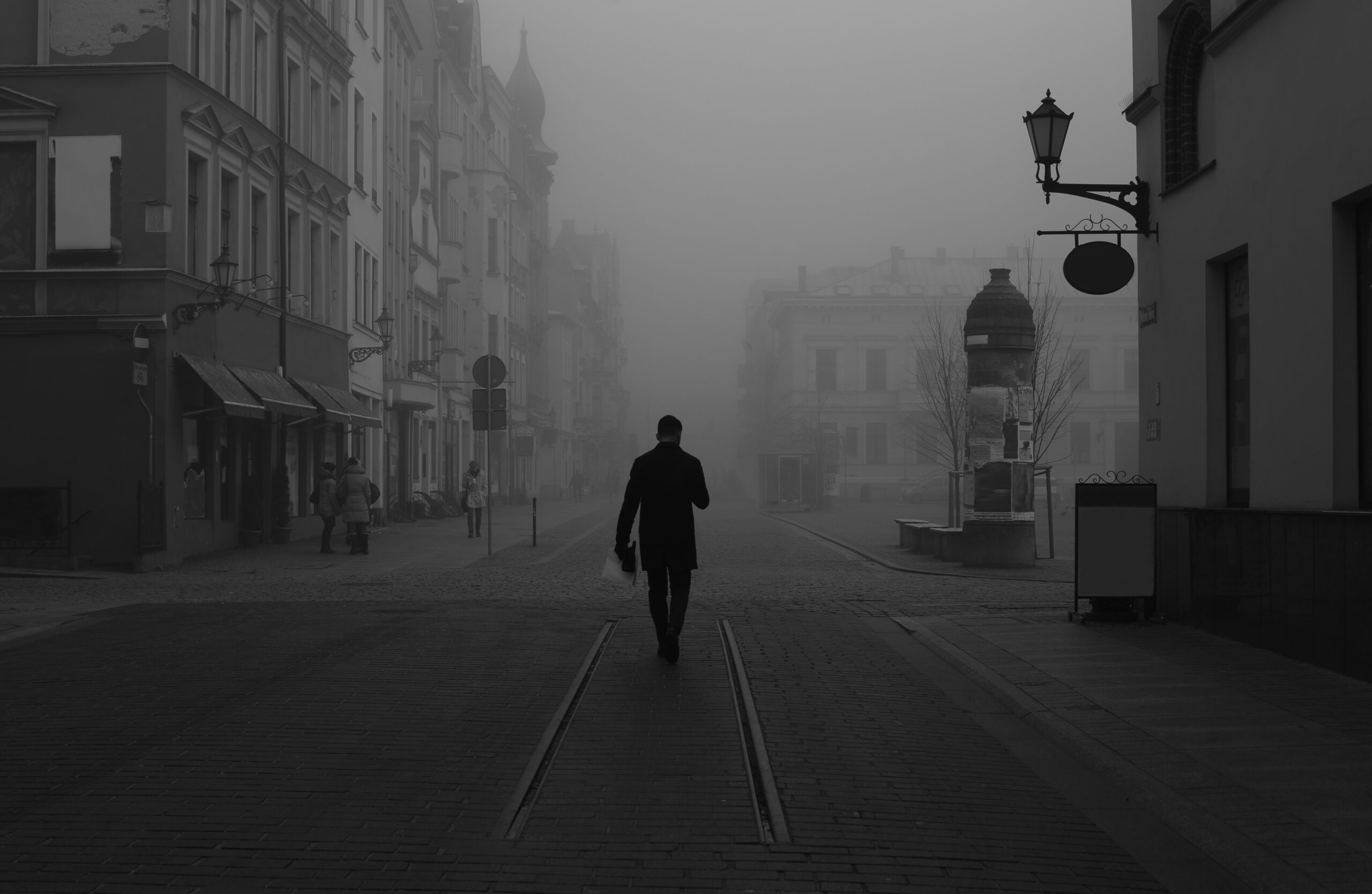
If you could go back in time, would you go and never return to the present? Have you ever thought about living in another era? Have you ever felt misplaced in this generation? What does a trip to a fictionalised past really mean?
If you could go back in time, would you go and never return to the present? Have you ever thought about living in another era? Have you ever felt misplaced in this generation? What does a trip to a fictionalised past really mean?

“Miniver Cheevy, born too late”, read Edwin Arlington Robinson’s famous poem. I finally seemed to have found a character I strongly identified with — one who wished he was born earlier, in another time period. As I privately adopted the position of a modern-day Miniver Cheevy, I initially failed to recognise the dangers associated with feeling this way. While it is well and good to revel in one’s own imagination, there are limits to how far this can go. My parents didn’t seem to understand why I wanted to teleport myself to the Victorian era, and they harboured mild concerns about this strange fascination of mine. Although we joked about it on a one-off occasion, the dangers of such nostalgia only came to my notice when I was slightly older, after viewing Woody Allen’s ‘Midnight in Paris’ (2010). The protagonist, Gil, is another member of the club that, to my knowledge, consists of Miniver and I. While I was consoled by the fact that I wasn’t alone in this strange longing of mine, I recognised how important it was to be aware of what and why I was feeling the way I did. I was definitely curious about this nostalgic sentiment that I always felt and why I sought books or movies that reflected this. In the process, I came to understand how important moderation is to avoid the subtle trappings of nostalgia.
“Golden Age Thinking involves escapism, which implies some sort of dissatisfaction with the present.”
In the film, ‘Midnight in Paris’, Gil and his fiancée Inez are on a vacation in Paris. Gil is in his own dream world, a Paris of the 1920s, detached from reality. At the stroke of the midnight hour, Gil is approached by a vintage car that whisks him away to the actual 1920s! Gil’s midnight escapades displace him from his present and reality. He gallivants around, spending time with the likes of Ernest Hemingway and Gertrude Stein, among other writers and artists of the time. Inez, Gil’s fiancée, colloquially describes it as being “in love with a fantasy”, which a professor in the film calls ‘Golden Age Thinking’. It is essentially the idea that living in a different time period is better than life in the current one. While this sort of thinking can be seen as one that encourages flights of imagination and romanticisation, it is actually quite blinding. It dodges the much-needed recognition of the dangers associated with this way of thinking. Golden Age Thinking involves escapism, which implies some sort of dissatisfaction with the present. This dissatisfaction is the underlying motive behind wanting to go back to a different time period. The same professor in the film encapsulates this idea: ‘Nostalgia is denial. Denial of the painful present’.
During a soirée on one of his nights out in the Roaring Twenties, Gil meets Picasso’s lover, Adriana. As they get chatting, Adriana reveals that she too aches to go back to a different time period. In her case, the Belle Époque, the period between 1871 and 1914. Just as Gil goes back in time to the 1920s, Adriana (along with Gil, on another one of his nights out) goes back to the Belle Époque. Gil realises that everyone idealises a different time period but going to that period is not the solution to one’s discontent with the present. It is opting for the ‘flight’ instead of the ‘fight’ response, which entails staying on and dealing with the present. It also occurs to him that the past that he could go back to, in his case, the 1920s, would become his new present, and potentially a new source of dissatisfaction. Gil understands that “life’s a little unsatisfying”, regardless of what period of time he lives in. Thus, while Adriana ultimately decides to stay in the Belle Époque, Gil gracefully accepts his present, the twenty-first century.
“It is evident from current happenings that Golden Age thinking, and restorative nostalgia have been instrumental driving forces in these right-wing regimes.”
Svetlana Boym (2001), writer and professor of Slavic and Comparative literature, outlines two types of nostalgia — reflective and restorative. Reflective nostalgia involves a sense of longing, but also an acceptance of the past being the past. Midnight in Paris is a case of reflective nostalgia. On the other hand, restorative nostalgia involves the longing to reconstruct the past. Restoring the so-called ‘golden past’ of a nation and recapturing its essence falls under restorative nostalgia. Fascist movements, notably that of Nazi Germany, reflect the desire to restore their “golden age”. In the case of Nazi Germany, Hitler wanted to restore their Aryan golden age. With the harsh anti-Semitic propaganda, he aimed to ‘purify’ German society. This Golden Age thinking in the context of a nation prevails in the present time too. In my country, India, steps are being taken by the right-wing government to restore the Hindu golden age (Gettleman, Schultz, Raj & Kumar, 2019). For as long as we can remember, a pervading concern in India has been the Hindu-Muslim cleavage, which has only been widening, especially in recent times. The recent Citizenship Amendment Act (2019), which denies citizenship to Muslim migrants while following a different policy for non-Muslim migrants, has its underpinnings in restorative nostalgia. The regime is said to be quite reminiscent of Hitler’s rule in some sense, and a similar comparison has been made with Trump. More specifically speaking, parallels have been drawn between the Nuremberg Laws (1935) in Germany, the US Immigration Policy and India’s Citizenship Amendment Act (Stanley, 2020). The Nuremberg Laws, which prohibited matrimonial relations between non-Aryans and those of ‘German blood’ and denied citizenship to German Jews, were enforced with the aim of preserving the purity of the German society. A more extreme example is that of the ISIS, which seeks to revive the Islamic golden age (Levinovitz, 2016). It is evident from current happenings that Golden Age thinking, and restorative nostalgia have been instrumental driving forces in these right-wing regimes. Actions that reflect similar nostalgic thinking are also seen in other parts of the world. For example, another brand of nostalgia, ‘imperial nostalgia’ — the longing for former imperial and colonial glory — has been seen in Britain with Brexit and Turkey under Erdogan (Shafak, 2018). Nostalgia is truly an important factor that guides our thinking and actions, both at the individual and the global level.
“when this longing to go back to another time becomes a more resonant thought, it may be associated with certain truths about you and your present”
I recently discovered a tattered scrap of paper on which I had hastily scribbled down a poem a couple of years ago. I described myself as ‘a lost fragment / from an era long gone’! As I wrote this article, it occurred to me that I have grown from thinking that I was perhaps misplaced in this era, as those poem lines very confidently declare, to someone who returns to the present after occasional trips down the black and white scene in Victorian London. While I always knew it wasn’t true, I was very attached to the image I had created of the Victorian era. The image in my head was rooted in my visualisation of the novella Strange Case of Dr. Jekyll and Mr. Hyde (1886), set in Victorian London — empty smoke-filled streets in London with warm yellow lamps, shattered dusty windows, battered doors and perhaps a few gentlemen with their Bowler hats. Just as Gil has to be reminded of tuberculosis that plagued the Paris of his dreams, I had to be reminded that Victorian London wasn’t particularly a dream either — it was filled with cesspools and reeked of sewage, for starters!
While it is fun going on these trips back to a created past, occasionally, it’s important to realise that when this longing to go back to another time becomes a more resonant thought, it may be associated with certain truths about you and your present. Well, despite these ‘dangers’ of nostalgia, I think it’s safe to say we all share a healthy longing for the pre-coron-ial times!<<
References
– Castilho, M. T. (2014). Going Back to the Past to Dream of the Future: Woody Allen’s Midnight in Paris and Spielberg’s Lincoln. Anglo Saxonica, 3(7), 175-186.
– Danforth, N. (2015). Imperial Nostalgia. Retrieved from https://www.foreignaffairs.com/articles/2015-08-19/imperial-nostalgia
– Eubanks, P. (2014). Memory and Nostalgia in Woody Allen’s “Midnight in Paris”. Revista de Humanidades, 23, 167-179.
– Fritzsche, P. (2002). [Review of the book The Future of Nostalgia, by S. Boym]. Slavic Review, 61(1), 128–129.
– Gettleman, J., Schultz, K., Raj, S., & Kumar, H. (2019). Under Modi, a Hindu Nationalist Surge Has Further Divided India. Retrieved from https://www.nytimes.com/2019/04/11/world/asia/modi-india-elections.html
– Levinovitz, A. J. (2016). It never was golden. Retrieved from https://aeon.co/essays/nostalgia-exerts-a-strong-allure-and-extracts-a-steep-price
– Midnight in Paris (2010). Allen, Woody (dir.). Sony Pictures. Film.
– Shafak, E. (2019). It’s not just Europe – toxic imperial nostalgia has infected the world | Elif Shafak. Retrieved from https://www.theguardian.com/commentisfree/2018/dec/10/nostalgia-for-empires-lost-seductive-dangerous
– Stanley, J. (2020). For Trump and Modi, ethnic purity is the purpose of power | Jason Stanley. Retrieved from https://www.theguardian.com/commentisfree/2020/feb/24/trump-modi-citizenship-politics-fascism
“Miniver Cheevy, born too late”, read Edwin Arlington Robinson’s famous poem. I finally seemed to have found a character I strongly identified with — one who wished he was born earlier, in another time period. As I privately adopted the position of a modern-day Miniver Cheevy, I initially failed to recognise the dangers associated with feeling this way. While it is well and good to revel in one’s own imagination, there are limits to how far this can go. My parents didn’t seem to understand why I wanted to teleport myself to the Victorian era, and they harboured mild concerns about this strange fascination of mine. Although we joked about it on a one-off occasion, the dangers of such nostalgia only came to my notice when I was slightly older, after viewing Woody Allen’s ‘Midnight in Paris’ (2010). The protagonist, Gil, is another member of the club that, to my knowledge, consists of Miniver and I. While I was consoled by the fact that I wasn’t alone in this strange longing of mine, I recognised how important it was to be aware of what and why I was feeling the way I did. I was definitely curious about this nostalgic sentiment that I always felt and why I sought books or movies that reflected this. In the process, I came to understand how important moderation is to avoid the subtle trappings of nostalgia.
“Golden Age Thinking involves escapism, which implies some sort of dissatisfaction with the present.”
In the film, ‘Midnight in Paris’, Gil and his fiancée Inez are on a vacation in Paris. Gil is in his own dream world, a Paris of the 1920s, detached from reality. At the stroke of the midnight hour, Gil is approached by a vintage car that whisks him away to the actual 1920s! Gil’s midnight escapades displace him from his present and reality. He gallivants around, spending time with the likes of Ernest Hemingway and Gertrude Stein, among other writers and artists of the time. Inez, Gil’s fiancée, colloquially describes it as being “in love with a fantasy”, which a professor in the film calls ‘Golden Age Thinking’. It is essentially the idea that living in a different time period is better than life in the current one. While this sort of thinking can be seen as one that encourages flights of imagination and romanticisation, it is actually quite blinding. It dodges the much-needed recognition of the dangers associated with this way of thinking. Golden Age Thinking involves escapism, which implies some sort of dissatisfaction with the present. This dissatisfaction is the underlying motive behind wanting to go back to a different time period. The same professor in the film encapsulates this idea: ‘Nostalgia is denial. Denial of the painful present’.
During a soirée on one of his nights out in the Roaring Twenties, Gil meets Picasso’s lover, Adriana. As they get chatting, Adriana reveals that she too aches to go back to a different time period. In her case, the Belle Époque, the period between 1871 and 1914. Just as Gil goes back in time to the 1920s, Adriana (along with Gil, on another one of his nights out) goes back to the Belle Époque. Gil realises that everyone idealises a different time period but going to that period is not the solution to one’s discontent with the present. It is opting for the ‘flight’ instead of the ‘fight’ response, which entails staying on and dealing with the present. It also occurs to him that the past that he could go back to, in his case, the 1920s, would become his new present, and potentially a new source of dissatisfaction. Gil understands that “life’s a little unsatisfying”, regardless of what period of time he lives in. Thus, while Adriana ultimately decides to stay in the Belle Époque, Gil gracefully accepts his present, the twenty-first century.
“It is evident from current happenings that Golden Age thinking, and restorative nostalgia have been instrumental driving forces in these right-wing regimes.”
Svetlana Boym (2001), writer and professor of Slavic and Comparative literature, outlines two types of nostalgia — reflective and restorative. Reflective nostalgia involves a sense of longing, but also an acceptance of the past being the past. Midnight in Paris is a case of reflective nostalgia. On the other hand, restorative nostalgia involves the longing to reconstruct the past. Restoring the so-called ‘golden past’ of a nation and recapturing its essence falls under restorative nostalgia. Fascist movements, notably that of Nazi Germany, reflect the desire to restore their “golden age”. In the case of Nazi Germany, Hitler wanted to restore their Aryan golden age. With the harsh anti-Semitic propaganda, he aimed to ‘purify’ German society. This Golden Age thinking in the context of a nation prevails in the present time too. In my country, India, steps are being taken by the right-wing government to restore the Hindu golden age (Gettleman, Schultz, Raj & Kumar, 2019). For as long as we can remember, a pervading concern in India has been the Hindu-Muslim cleavage, which has only been widening, especially in recent times. The recent Citizenship Amendment Act (2019), which denies citizenship to Muslim migrants while following a different policy for non-Muslim migrants, has its underpinnings in restorative nostalgia. The regime is said to be quite reminiscent of Hitler’s rule in some sense, and a similar comparison has been made with Trump. More specifically speaking, parallels have been drawn between the Nuremberg Laws (1935) in Germany, the US Immigration Policy and India’s Citizenship Amendment Act (Stanley, 2020). The Nuremberg Laws, which prohibited matrimonial relations between non-Aryans and those of ‘German blood’ and denied citizenship to German Jews, were enforced with the aim of preserving the purity of the German society. A more extreme example is that of the ISIS, which seeks to revive the Islamic golden age (Levinovitz, 2016). It is evident from current happenings that Golden Age thinking, and restorative nostalgia have been instrumental driving forces in these right-wing regimes. Actions that reflect similar nostalgic thinking are also seen in other parts of the world. For example, another brand of nostalgia, ‘imperial nostalgia’ — the longing for former imperial and colonial glory — has been seen in Britain with Brexit and Turkey under Erdogan (Shafak, 2018). Nostalgia is truly an important factor that guides our thinking and actions, both at the individual and the global level.
“when this longing to go back to another time becomes a more resonant thought, it may be associated with certain truths about you and your present”
I recently discovered a tattered scrap of paper on which I had hastily scribbled down a poem a couple of years ago. I described myself as ‘a lost fragment / from an era long gone’! As I wrote this article, it occurred to me that I have grown from thinking that I was perhaps misplaced in this era, as those poem lines very confidently declare, to someone who returns to the present after occasional trips down the black and white scene in Victorian London. While I always knew it wasn’t true, I was very attached to the image I had created of the Victorian era. The image in my head was rooted in my visualisation of the novella Strange Case of Dr. Jekyll and Mr. Hyde (1886), set in Victorian London — empty smoke-filled streets in London with warm yellow lamps, shattered dusty windows, battered doors and perhaps a few gentlemen with their Bowler hats. Just as Gil has to be reminded of tuberculosis that plagued the Paris of his dreams, I had to be reminded that Victorian London wasn’t particularly a dream either — it was filled with cesspools and reeked of sewage, for starters!
While it is fun going on these trips back to a created past, occasionally, it’s important to realise that when this longing to go back to another time becomes a more resonant thought, it may be associated with certain truths about you and your present. Well, despite these ‘dangers’ of nostalgia, I think it’s safe to say we all share a healthy longing for the pre-coron-ial times!<<



